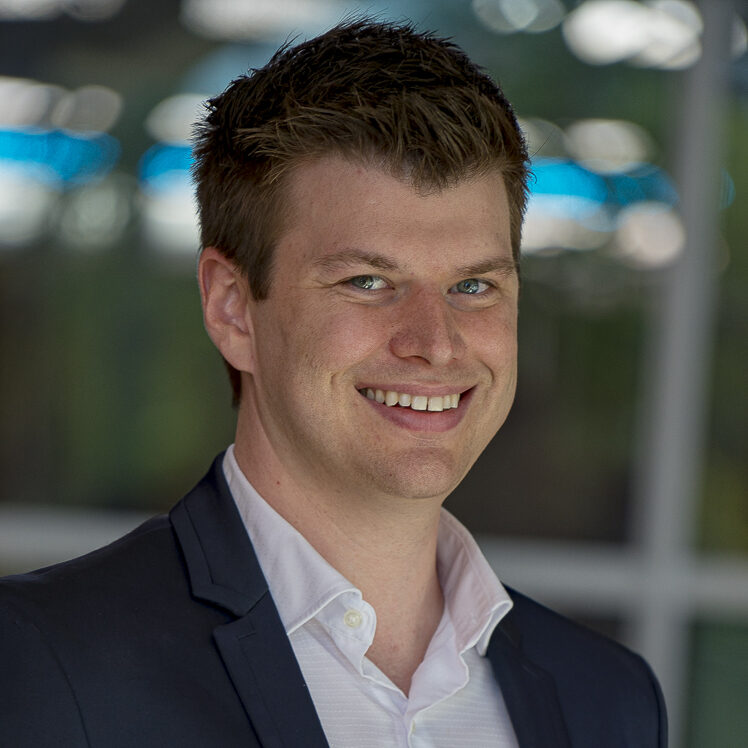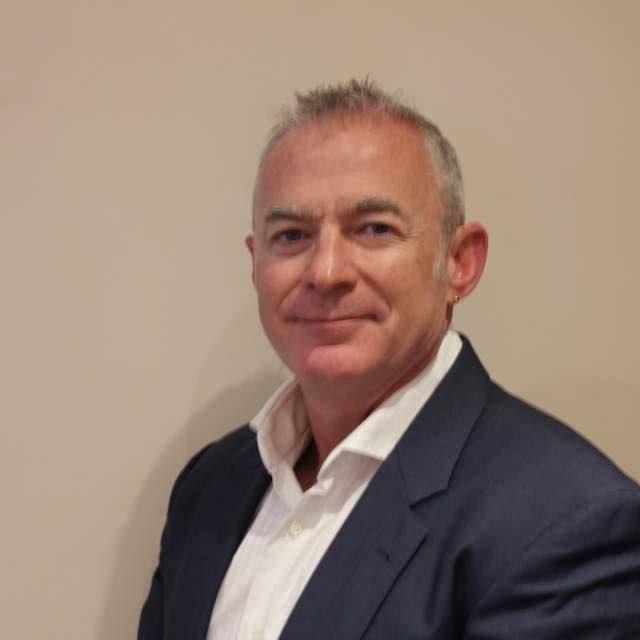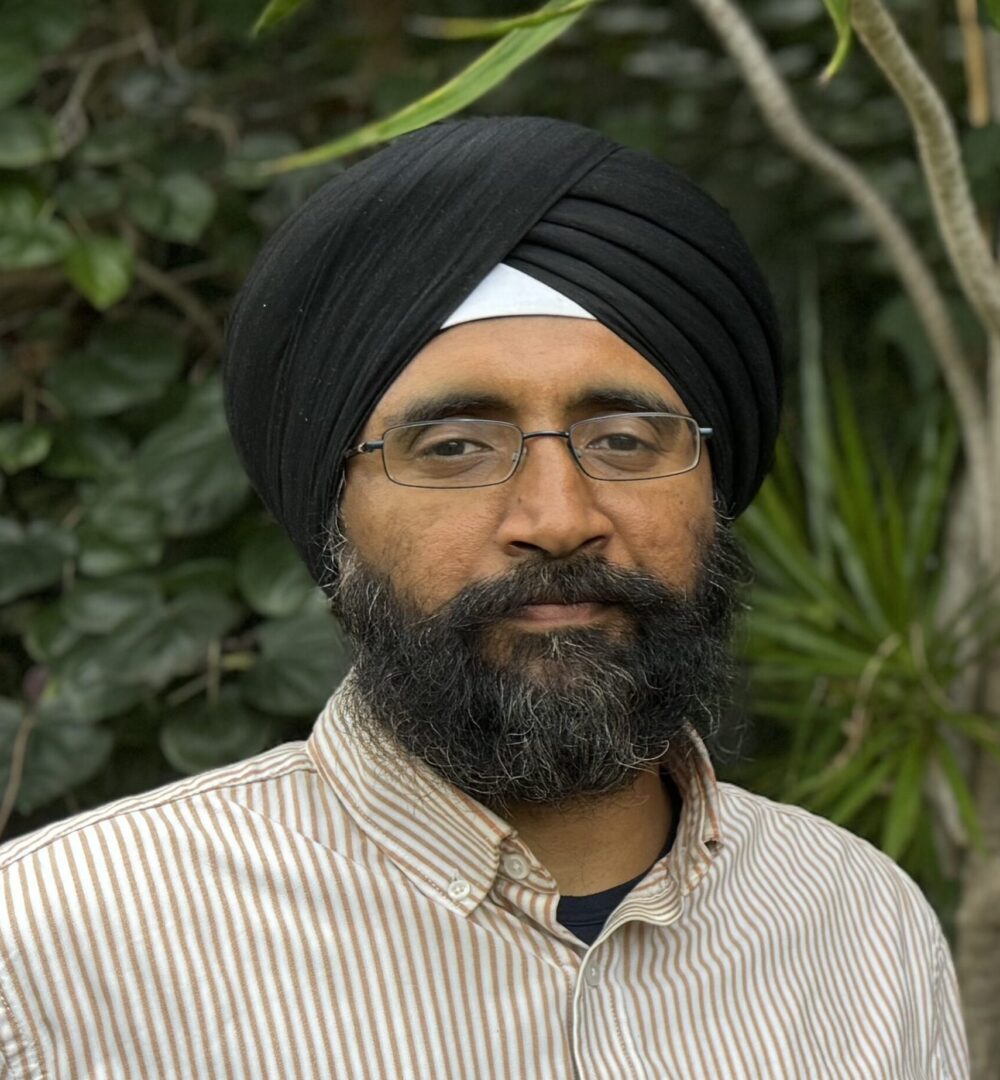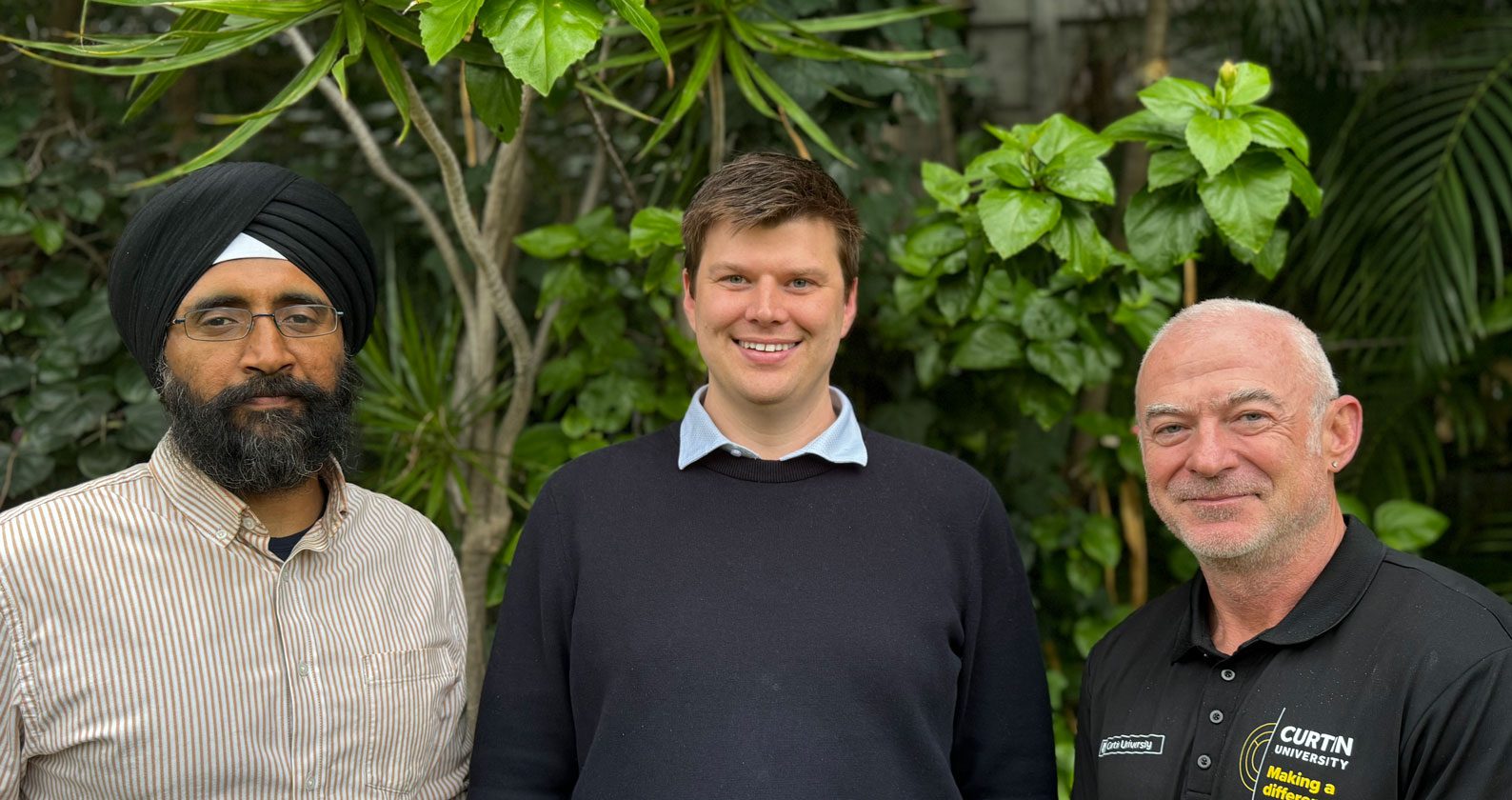Keegan’s journey to research wasn’t a straight line, but it led somewhere he didn’t expect. Now, he’s uncovering how the real impacts of climate change ripple through politics, turning vast temperature data into insights on how voters respond when the world gets hotter.
Keegan Robertson is a Research Fellow completing a PhD in the School of Accounting, Economics and Finance at Curtin, co-supervised by Curtin’s John Curtin Distinguished Professor Mark Harris and Dr. Ranjodh Singh. Keegan, Mark and Ranjodh reflect on the research project, climate change data and the student-supervisor relationship.
Keegan:
My journey to PhD studies wasn’t direct. I finished my undergrad in 2012 in Canada, focusing on global development studies. After working for eight or nine years in various sales and administrative roles, I started the MBA program at Curtin. It was while I was doing that that one of the unit coordinators encouraged me to consider research as a career pathway. It aligned better with my life objectives, so I switched to the PhD program.
The pathway to Mark and Ranjodh was non-traditional. I was guided by a professional mentor who suggested that I reach out to them. The lack of recent study was a concern for me, and whether my skills were up to scratch. I didn’t have the math background, and I hadn’t done any research. That’s been a really big thing that my supervisors have been able to help me with, giving me the direction and guidance that I needed to develop better research skills, particularly on the econometric side of things.
My research project investigates how or whether people are politically responsive to the effects of climate change. It appeared to me that climate change is really hurting people in a lot of different ways. A lot of academic literature has revealed many negative consequences that are happening, but they’ve been viewed as a fringe topic, politically. That just didn’t align in my mind.
Through my data, I found that people are responding, particularly in their voting behaviour, to the experience of climate change. They punish primarily right of centre parties. The biggest chunk of my thesis was looking at U.S. voting behaviour, and the punishment is primarily from voters against the Republican Party. I replicated those findings in the Australian case as well and found that the Liberal Party is the one that’s losing out.
My objective now is to better inform policy on dealing with climate change. Hopefully, I can get traction on the idea that even conservative parties benefit from dealing with climate change. I also hope to better communicate to the general public that there are negative consequences to climate change that they may not even be aware are affecting their behaviour. I recently presented at Research Rumble, and following that presentation, I was contacted by a member of the Labor Environmental Action Network and the Doctors for Environment. They were really interested to hear more about my findings.
I felt like my lack of math skills was a big challenge for me. It was quite hard to get started. Learning how to keep it simple was hard too. Mark and Ranjodh said to me at one stage; you don’t have to do fancy things, just do what you know how to do. Start there and we can build up. I felt then that I had the permission to just start small and keep it simple. There was just a feeling of safety from that guidance.
“It was okay for me not to know everything.”
The data part was a huge undertaking. I compiled district level temperature from 1898 until 2022 across the entire US. There were more than 500 billion data points. It was a complicated task to develop that into something meaningful for other researchers, and myself, to use in the future to answer specific questions.
The biggest achievement so far has honestly just been getting past the desk reject stage at a journal. The journals we are targeting have very high rejection rates, so that has been a learning curve too. One of my chapters has gone out to review, and we got some useful feedback out of that process. That chapter has also been accepted at some high-profile conferences and workshops. In fact, one of the keynote speakers at a conference where I presented that chapter was just awarded the Nobel Prize. One can dream.
The regular meetings with Mark and Ranjodh have been meaningful for me. We’ve met quite regularly, like once a week, once a fortnight. It’s important to feel like there’s trust. Being able to be vulnerable and say what you don’t know. To know that the feedback you’re going to get is going to be encouraging, constructive and supportive rather than dismissive.
Mark:
Keegan asked if I could have a quick bit of a chat with him, and that went on for about three hours. Keegan was not in a particularly good space, research wise, and neither of us were climate experts. But the sort of work Keegan was doing looked really interesting.
With someone like Keegan, the working relationship is more of a collegiate relationship as opposed to a hierarchical one. Sometimes depending on the student, you have to be a little bit more kind of pushy depending on how they respond. But with Keegan it was more like chatting to a colleague and giving advice rather than pushing him down a particular path. Keegan knows where he is and knows where he wants to end up.
One of the big things I’ve learned from this process is the complexities of handling the kind of data that Keegan’s been working with in terms of temperature and geography. To get to the results, it’s like climbing two mountains before you climb that third mountain. How do you measure climate change at different points in time, in different geographies? Even just getting that question answered is a massive undertaking.
I’ve also learned to appreciate the beauty of research, pure research. We can advise Keegan where we think he should be going, but you’ve got to respect that the PhD journey is the PhD student’s and not ours.
Ranjodh:
Keegan was well known around the school as an early researcher who was also great at teaching. Keegan also provides valuable insights into real-world scenarios. It was refreshing to have that perspective, and that comes with maturity. Keegan is highly self-motivated, which makes supervision straightforward.
My approach to supervision is adaptive. PhDs do not work at a constant pace. There are times where everything is progressing at an exponential rate, and then there are times where everything seems to be at a standstill, and that is fine.
There is a fine line between ambition and madness. There is a tiny bit of madness you want to keep, like the Mad Hatter. But other than that, you want to balance. Knowing how to pace yourself so that it does not cause stress to you or those around you.
Keegan made a significant contribution to the data collection and management processes through diligent work. Preparing data, particularly weather data, can be extremely complicated to manage.
Observing Keegan’s progress from a challenging period to his current improved situation has been the most significant aspect of this journey to date. The best is yet to come. Every supervisor hopes that their student goes on to do something impressive.
You always want the student’s welfare first. Even if they have gone off track. At the end of the day, it is fine, because they could find something else that no one is expecting. They should be able to freely explore without feeling judged.
About the researchers:

Keegan Robertson
Keegan is working at the intersection of climate change, economics, and politics, currently focused on people’s political responses to the effects of climate change. He works on a range of related topics under a broad umbrella of quantitative and qualitative social science with a solid focus on policy implications.

John Curtin Distinguished Professor Mark Harris
Mark is a Professor of Econometrics in the School of Accounting, Economics and Finance. His research interests are very broad, covering such diverse areas such as labour economics, drug consumption, body mass index, and health economics in general. He is a current member of the ARC’s College of Experts.

Dr. Ranjodh Singh
Ranjodh is a Senior Lecturer and Co-Discipline Lead at the School of Accounting, Economics and Finance. His research interests include applied econometrics and applied statistics. Before joining academia, he worked in both the private and public sectors.



